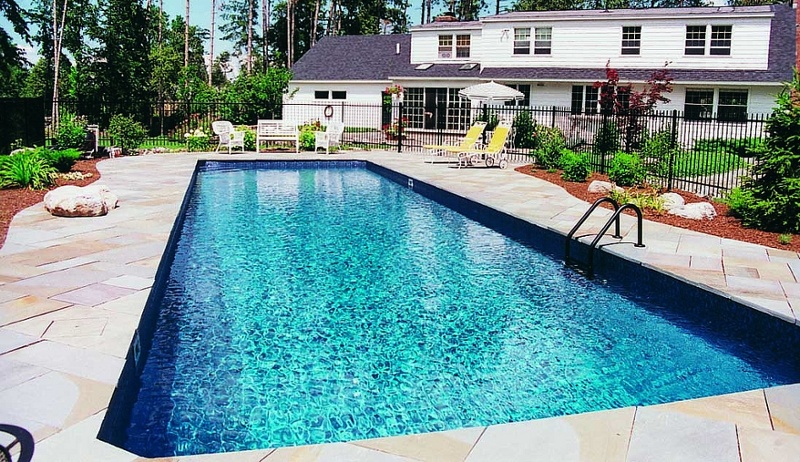If you’re looking to spruce up your backyard in preparation for the summer, an in-ground swimming pool might be something worth considering. Having one is the best (and most fun) way to beat the heat during hot days, and it also adds value to your home. Before building a pool, however, you should know about the right type and materials to use based on the size of your backyard.
Pool Types
Pools come in all shapes and sizes, there are different pools for different lifestyles. Recreational pools are shallow at one end and deep on the other. It comes in different shapes, but the most common choice among homeowners is the standard rectangular one. Lap pools are similar to Olympic pools, but are narrower, which makes it ideal for training and exercise. Swim spas are ideal if you want a pool that generates artificial currents.
Pool Materials
1. Vinyl Pools are among the most affordable options. Most vinyl pools are built on-site by assembling a pre-engineered perimeter wall system designed by the manufacture. The walls are usually made up of steel or polymer materials. One special advantage polymer walls have over any other vinyl pool wall is they are 100% corrosive free. A vinyl liner that is custom-made by the manufacture installs over the wall system to hold the water. Vinyl liners are great pools in moderate to cold climates. They are also great for all ages because the surface is smooth to the touch, so your family won’t have to worry about scraping their toes or knees like they would in a concrete pool.
2. Concrete Pools are made of aggregate, cement, sand, and water. Depending on the mix and application, you can use either a shotcrete or a gunite. Pool contractors will install a plaster finish to complete the installation.
3. Fiberglass Pools are pre-molded in factories and come in different shapes and sizes. Pool contractors simply have to place them over the hole they’ve dug and clean up the area to finish the installation.
Pool Decking
Bricks, concrete, tiles, and stones are some materials that you can use for the pool deck. Make sure that the wet surface isn’t too slippery to avoid accidents. You decide if you want these materials to occupy only the borders of the swimming pool or create a pathway along the backyard. Regardless of the material used, pool decks also need regular maintenance to prevent the build-up of algae and moss.


